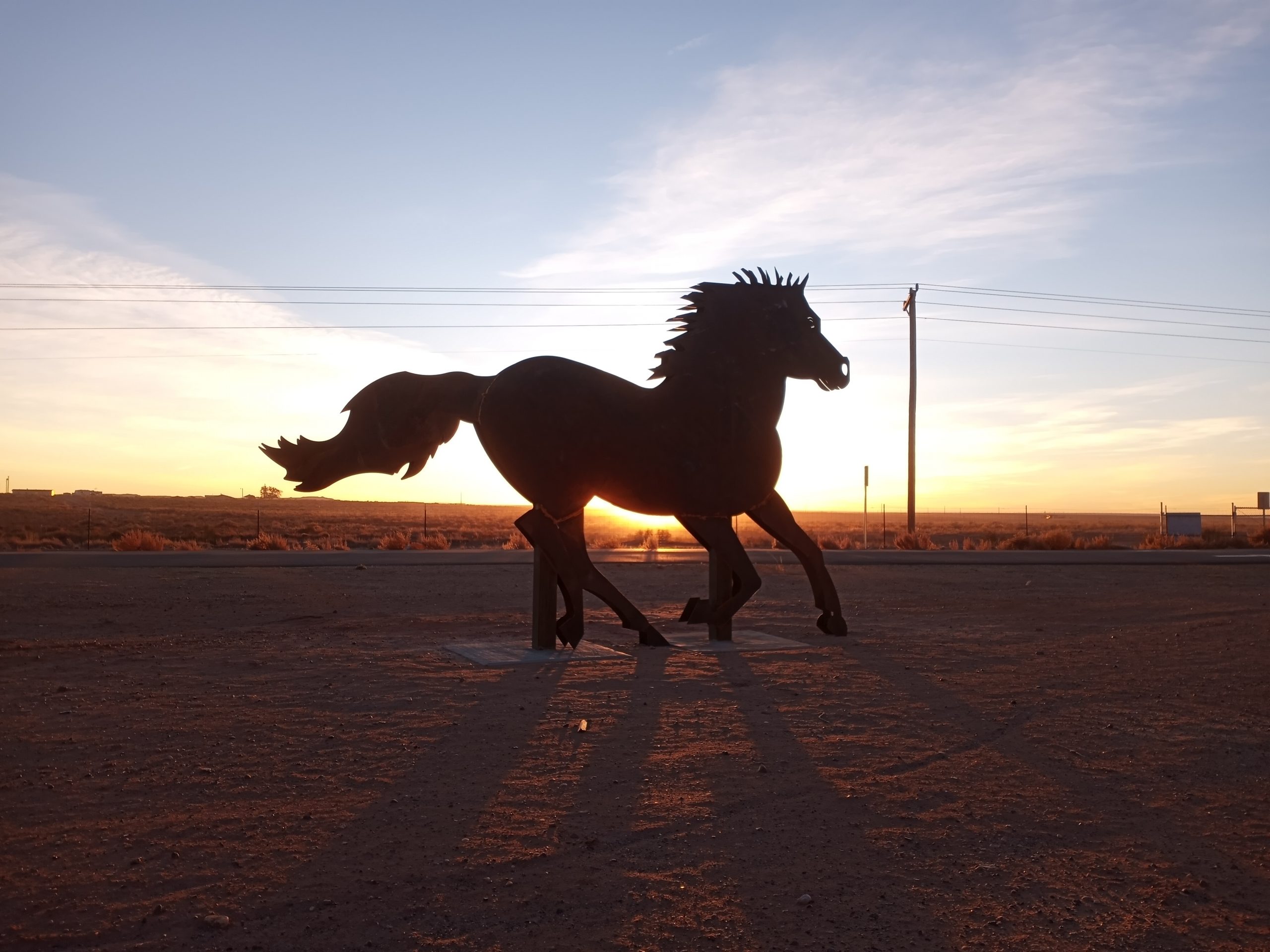Growing Connections Across Indigenous Schools
September 15th saw a great milestone in the continued work being done by Tufts CEEO partner KARMA (Ke’yah Advanced Rural Manufacturing Alliance) to strengthen relations among indigenous schools in their community. Educators, administrators, and students from Little Singer Community School (Navajo Nation) visited staff and students of Second Mesa Day School (Hopi Nation) both in-person and remotely to share in a session of playful robotics engineering. Additionally, faculty and administrators from both schools had the opportunity to discuss and plan further collaboration on developing culturally responsive STEAM projects for their students.

Alison Earnhart, Tech and Play project administrator and long-time collaborator with Little Singer Community School, gives her account of the experience:
“I zoomed in with them for about 4 hours in total. In the morning, they had a two hour introductory hands-on workshop with SPIKE Prime robotics for the Second Mesa teachers and a handful of students too. The workshop was led by Tom (educator at Little Singer) in-person, while I, our graduate student Tyrine, and 4 of Tom’s 5th and 6th graders from LSCS zoomed in to provide remote assistance. Tom’s students were FANTASTIC peer mentors for the students at Second Mesa, and they shared building techniques and Heart Program tips like seasoned pros in our zoom breakout rooms. Tom’s method of using peer to peer mentorship across a virtual meeting was genius, and a big success. We intend to use this as a model as we move forward, with students and teachers from Second Mesa zooming into Tom’s robotics classes on a regular basis to participate in projects and learn virtually alongside their peers. The giggling and enthusiasm I saw yesterday as children and adults alike shared their final builds at the end of the session was one of those classic heartwarming moments where I knew that playful learning was being realized. It was golden!”
“I was especially thrilled to see how Tom is gaining confidence both with the SPIKE system and also with more student-centered and exploratory STEAM projects. His leadership in the workshop shows me that all the work we’ve been doing together over the last year and a half is maturing into a project that will have a long-lasting impact on the entire region of the Navajo and Hopi nations. He’s successfully transplanting his learning and experiences to a neighboring school, and developing the tools and methods to keep this ripple effect in play.”
“In the afternoon, I had another two hour session with them, this time it was a meeting with teachers and admins at Second Mesa with Tom still there (and Dr. Jones, director of KARMA, visiting as well), and the admin crew from LSCS zooming in too. All together, we shared stories of how the culturally-enriched STEM program at LSCS got off the ground, and the Second Mesa folks are extremely excited to pursue further collaboration with them. There’s a big focus on integrating their home languages into STEAM instruction, and we already have so many examples of success regarding incorporating Navajo language and thought into the robotics projects Tom and his colleagues have been developing. The two schools are already setting up some exchange trips for teachers to visit each others’ classrooms and observe what they’re doing with playful STEM and robotics, and they’re really very excited about my visit (along with my colleague Elissa Milto) next month to dive deeper into some PD for robotics, Novel Engineering, and playful learning.”
This work is being supported by the Tech and Play initiative along with another LEGO Foundation grant collaboration with Tufts CEEO known as PEBL.


